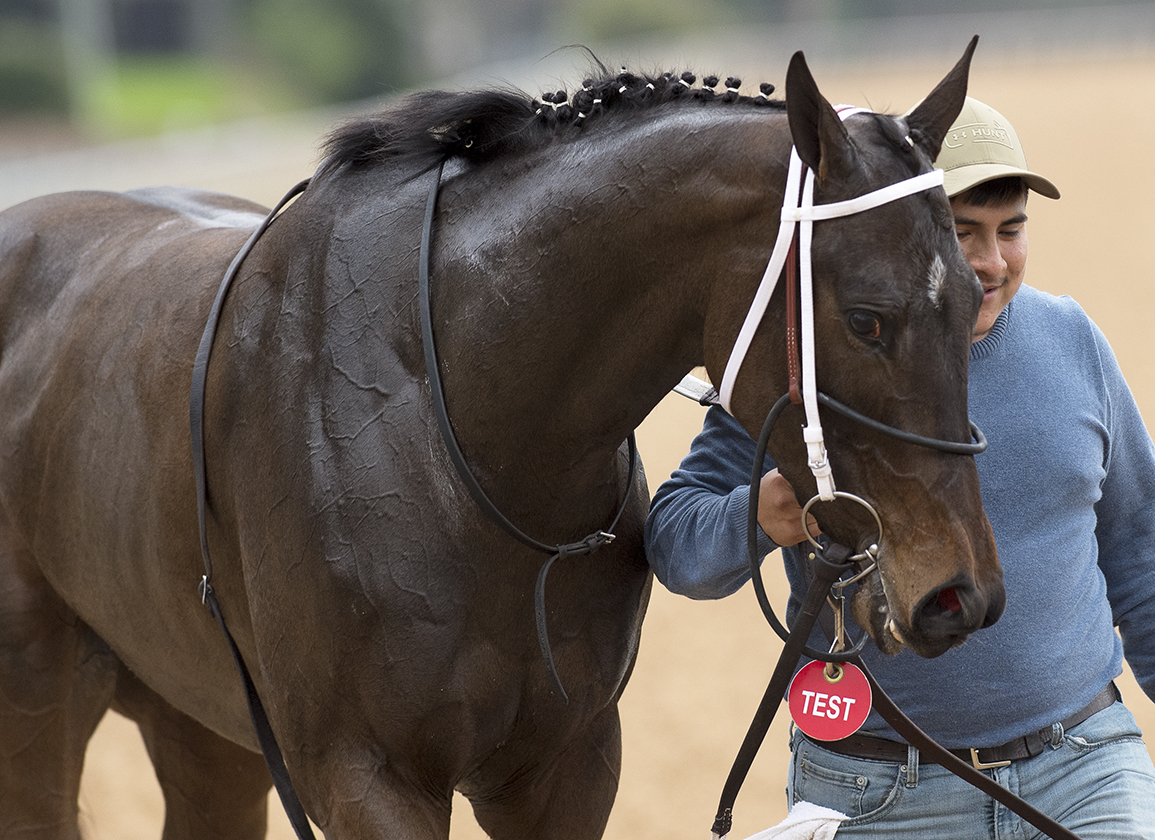Editor's Note: This week, we start a series in the TDN where we attempt to clarify a HISA regulation that has been the subject of confusion in the early days of the rollout. This week, we discuss the test barn, where we have received letters to the editor saying that sample collection personnel may not be practicing proper hygiene, nor wearing gloves. What do the rules say, and what should you do if you observe this? HISA CEO Lisa Lazarus answers us below.
Sample collection procedure requirements in the test barn are described in the 5000 series of HISA's rules. All sample collection personnel nationwide are trained by HIWU to follow one uniform set of procedures. HIWU worked with existing sample collection personnel to establish protocols that built off previous practices while enhancing the integrity and security of the entire sample collection process. Below are examples of policies in place at all test barns under the jurisdiction of HISA and HIWU:
- At the start of each horse's test session and prior to removing the lid from the collection container or sample bottles, sample collection personnel will wash their hands with soap and water or isopropyl alcohol-based hand sanitizer. Personnel collecting urine must wear a new pair of disposable exam gloves. This is repeated for each horse that undergoes sample collection.
- While it is required for sample collection personnel to wash their hands before collecting blood, sample collection guidelines do not mandate the use of gloves for veterinarians collecting blood due to feedback received that gloves can inhibit the ability to collect blood safely and effectively. Blood collection is performed directly into sealed tubes, thus avoiding sample contact with collection personnel, other horses, or the test barn environment.
- Test barn personnel will assign a clean and disinfected water bucket to each horse that arrives in the test barn, and horsemen are responsible for ensuring their horse only drinks from its assigned water bucket. Test barn personnel are required to wash, disinfect, rinse, and securely store water buckets between uses.
If a horseman has a concern about procedures or conditions in the test barn, they should discuss the situation with the sample collection personnel or the test barn supervisor so that the matter can be addressed during the sample collection session. HIWU also offers a Supplementary Report, which can be initiated by the trainer, assistant trainer, groom, etc. who is present to record details or comments specific to the sample collection session.
Additionally, sample collection personnel will use the Supplementary Report to document adjustments from standard protocols during the sample collection process. For example, the Supplementary Report is used if a horse does not provide a urine sample. Supplementary Reports are reviewed by HIWU after submission.
Further, concerned individuals can contact support@hiwu.org or (816) 800-8152 to share feedback about test barn operations and provide as much detail as possible, e.g., date and racetrack. HIWU takes these concerns seriously and is committed to quality assurance through regular communication and feedback with the racetracks and test barns and initiatives such as field observations and in-person refresher training for sample collection personnel.
Not a subscriber? Click here to sign up for the daily PDF or alerts.






